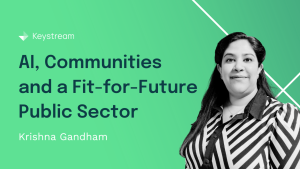19.06.2025
NHS Confed 2025: Making Space for What Matters
This year’s NHS Confed was a powerful opportunity to connect, reflect and learn alongside colleagues from across health and care. It underlined the transformation already underway in our system and the importance of collaboration, creativity and compassion in making it work.
A consistent thread across the event was the need to create space for innovation. Not just new tools or systems, but the time to think differently, test ideas and move forward in focused, realistic steps.
This came through in the Real-world Innovation sessions, where we heard from teams delivering practical change that is making a measurable difference. Innovation worked best when it was co-designed with the people delivering care and supported by executive teams from the start. Without that alignment, transformation risks losing momentum.
Hillingdon’s discharge work was a strong example. By integrating data across social care settings, they have created a single view of discharge status, easing bottlenecks and helping teams coordinate more effectively. With plans to expand into community and mental health services, it is a model that reflects the growing shift towards integrated, community-led care.
Mental health was another key focus. The Sheffield 24/7 pilot offered a powerful case for bringing care closer to home. The wider message was clear: we need to move beyond siloed responses and treat mental health as a shared responsibility, something that sits across systems, not outside them.
In digital, the emphasis was on trust. Frimley ICB showed what can happen when transparency and communication are prioritised alongside investment. Being clear about what data is collected, why it matters and how it benefits patients is essential to building confidence and ensuring digital change is felt, not just implemented.
Workforce engagement was also front and centre. The sessions made a strong case for creating environments where people feel agency, not just responsibility. Whether through better use of AI to reduce admin or through spaces for collaboration and honest feedback, the message was the same: when staff feel heard and supported, care improves.
Together, these reflections point to a system that is not waiting for perfect conditions. It is already moving, through shared insight, better communication and a growing belief that progress is possible when we do it together.
